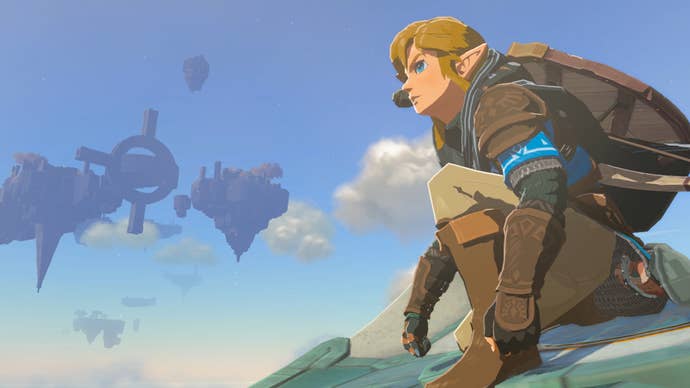How TikTok’s most intriguing geolocator makes a story out of a game.
I both hate and love geolocation games.
I hate to play it myself because I’m clueless at it.

But I love to watch it being played by others.
It suddenly opens up.
It becomes something thrilling.

GeoGuessr is a geolocation game that runs on a online window or on your phone.
It could be from anywhere.
The image loads: a street terminating in what looks like a park.

Urban - a capital somewhere given the scale and density of the buildings, the width of the streets.
Cream buildings, a little dirty and scuffed.
And if it could be Budapest couldn’t it be Bucharest?

Not Bratislava - the scale is all wrong.
What a wonky list!
How addled and misdirected by the whims of memory.

I take a punt on the blurred license plates and guess London.
It was Paris, 339 km away from where I dropped my pin.
That’s playing GeoGuessr.
Watching it, though?
I could watch this stuff for hours.
There’s one English guy I like, with big specs and permanent bedhead.
He is so fast.
He is so inhumanly fast.
A win, offset by mere yards.
And all in less time than it takes me to sigh.
This is how it is with a lot of geolocation people.
I watch lots of magicians on TikTok, and the effect is eerily similar.
Speed and beauty combine, and then you never learn how it was all done.
You’ve seen something delicate and unlikely, but then you move on.
And, truth be told, in time I move on too.
But there’s one geolocation TikToker who I will always stick with.
Someone whose videos I have never, ever scrolled past.
This isJosemonkey, andhe finds people who ask to be found.
But more than that, he takes the game and turns it into something else, something more precious.
He slows it down.
He explodes the thinking process.
He’s our Sherlock Holmes of the car park.
He’s the Daryl Zero of state licence plate designs.
He takes a game and he turns it into a story, an adventure.
And one day, watching one of his videos, I realised: I want to know more.
I’m starstruck certainly, but I’m also just surprised.
Some part of me is dazzled that he is real.
I suspect that this is because Josemonkey’s such an unusual candidate for TikTok superstardom.
Josemonkey is very different.
He is calm and kind and softly spoken and precise.
He speaks quickly, but he makes his words count.
Even that deftly chosen Josemonkey monologue, always unfolding with cool precision, maintains this.
Set phrases becoming almost ritualistic: “So what can we see?”
he asks at the start of a video.
“And guys, that was it,” he announces at the conclusion of a search.
So what can we see?
How did this all get started?
Josemonkey first heard about geolocation as an interesting potential hobby.
Sometimes there would be a prize, but there didn’t need to be a prize.
The process itself was interesting, game-like, worth spending time on.
“Like, even if it was somebody I knew sharing a photo.
If they didn’t say where it was, I would often wonder: where is that?
And I would wonder, well, can I figure it out?”
Sometimes you might use what’s in a photo to work out precisely where it was taken.
“It was just a fun kind of puzzle to challenge myself,” he explains.
Josemonkey was familiar with Rainbolt, but feels there are a handful of differences in his approach.
“The first,” he tells me, laughing, “is that I’m an explainer.
I like to explain things.
I talk a lot.
I mean, my kids will tell you that.
“I think that they enjoy them sometimes.
Sometimes they’re: Okay, Dad, that was a longer answer than I needed.”
So yes, Josemonkey is an explainer.
But there’s more to it than that.
Like: you’re free to see the antenna on the car in this country.
It’s literally stuff like that.
But also, he enjoys research as much as he enjoys explaining.
“And when you play Geoguessr, you’re not really supposed to do research,” he says.
“You’re supposed to just use what you’re seeing and what you know.
Cheating, yes, but for some people that’s where the actual fun is.
And so the Josemonkey Approach came together.
“I’m free to look up whatever I see,” he says.
“And I don’t need to do it quickly.
And that’s the thing that is satisfying for me.
And it’s why I like to explain it.”
There’s another part of the mix too.
Does that mean people don’t accuse him of cheating?
A video of someone in a car park - find me Josemonkey!
- might lead in a hundred different directions.
It could be a pin on someone’s shirt or an IHOP in the distance.
“It’s really just the thing I like to do,” he laughs.
I am in a fortunate situation.
Once I started doing this, there was an interest, and people just started sending me these videos.
And now I’m like: this is great.
I have this seemingly endless supply of puzzles to solve.”
As for the geolocation mindset, can it be turned off?
Or has it slowly become the lens through which Josemonkey sees the rest of the world?
“But it is just dialled up to 11 at this point.
It is difficult to turn it off.
And it can be distracting.
And it can spill outwards.
And so sometimes I will be just out in the world, I’m driving somewhere.
And as I’m driving, I find that I’m doing the same thing.
Hopefully I do!”
Are there pluses to this?
Josemonkey feels he notices more than he used to.
It is, in this sense, a distinct way of being in the world.
“I’m more aware of things that I didn’t pay attention to before.
For example, I know where all of the electrical transmission lines are in my general neighbourhood.
Crucially, geolocation is still surprising to him, and still leads to surprising places.
I mean, that happens.”
When it does, it’s crucial to preserve these mis-steps as part of the story.
“I like to be transparent.
And also, it lends something to the very real storytelling I’m doing.”
He thinks for a second, arranging thoughts.
“I prefer to tell you a story that’s true rather than one that is super-fascinating and interesting.
Like, I hope that it’s coincidentally both, right?
But I would rather tell a true story.
There were people in the background messing with objects that he could not identify.
He broke off for a bit and went to play the latest Zelda.
It made me wonder at the time: is Josemonkey a big fan of video games?
And is he drawn to the same things in them that he is in geolocation?
“The whole memories framework that they had, oh: it is geolocation,” he says.
“It’s exactly what I like to do.
And it’s so funny, I actually posted a video about this.
I was saying that I had this idea that maybe I can make a geolocation video game.
For me, it’s because they place you in Hyrule and root you quite strongly to the ground.
You’re deep into the landscape because you’re looking around for specific parts of it.
I feel doubly engaged, doubly contained at these moments.
Is Earth trending towards car park?
Are we developing a planet where huge chunks of it increasingly look similar?
This looks like Anywhere USA.
People have noted, various places in the United States can look very, very similar.
“And it is refreshing when there are regional differences.
Because they’re helpful in figuring out where you are.
But also just because it’s a change of scenery.
“So yeah, I think that there’s definitely some things to pull from that.
The local flavour of different places is sometimes what makes them interesting.
“I think it’s definitely something I’ve observed.
And that’s, and that’s always nice to see.”
He pauses for a second, and then says something surprising.
“Honestly, it’s really interesting to me to see some of these places.
I’m not really well-travelled, quite honestly.
I’ve not been to the vast majority of the places that I have located.
This ties into something I’ve been waiting to ask Josemonkey.
As our interview draws to a close, I produce my copy of Skyfaring, by Mark Vanhoenacker.
It is that our world on the ground… is so enormous.
He must have more of a sense for it.
Has it granted him what Vanhoenacker refers to as a ‘planetary sensibility’?
“I like that quite a lot,” he says, turning the phrase over.
“That resonates for me to a degree.
I feel like in some ways, it’s funny, it can do both things.
But at the same time, it is so vast!
“Sometimes I’ll start doing that.
And then I’ll realise just how big the area is, just how impossibly big it is.
It is sort of awe inspiring and humbling to see that.
“I don’t know what to say other than that.
“But it’s all relative, right?”
And guys, that was it.